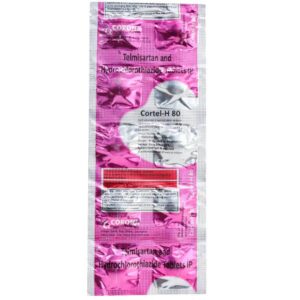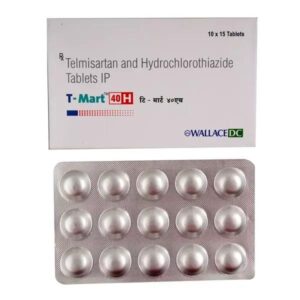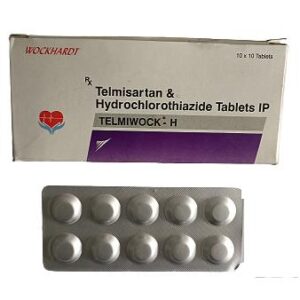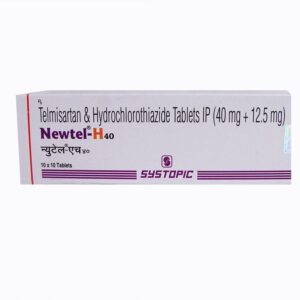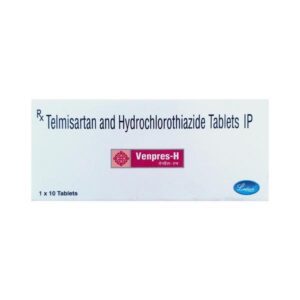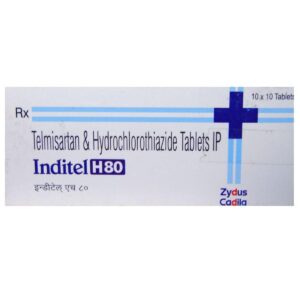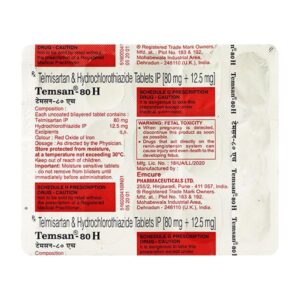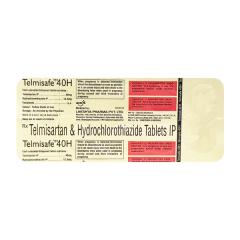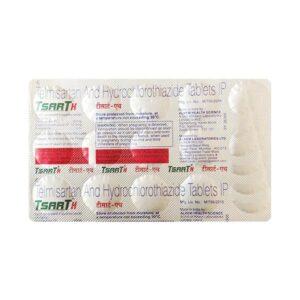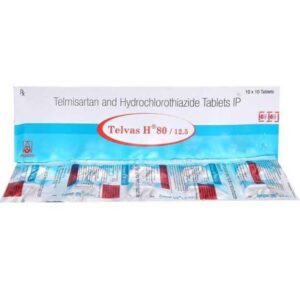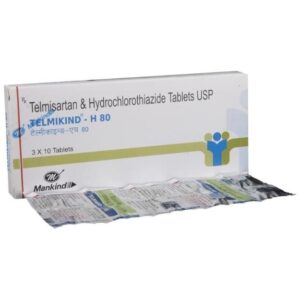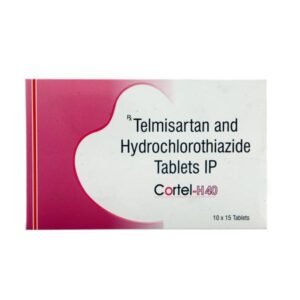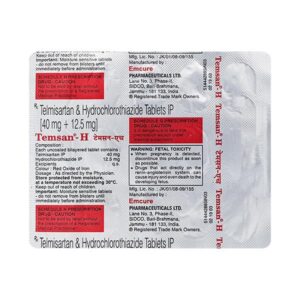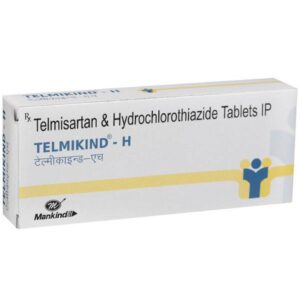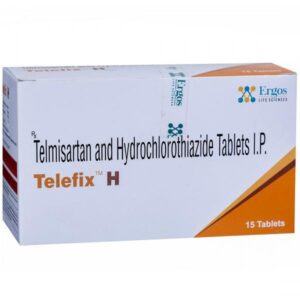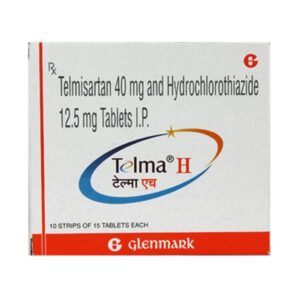HYDROCHLOROTHIAZIDE + TELMISARTAN
Hydrochlorothiazide: Hydrochlorothiazide is a medication commonly used to treat high blood pressure and fluid retention (edema) due to various conditions such as congestive heart failure, liver disease, or kidney disorders.
It belongs to the class of drugs known as thiazide diuretics, which work by increasing the excretion of water and salts (including sodium and chloride) through the kidneys. This helps to reduce blood volume and, consequently, lowers blood pressure.
The usual starting dose of hydrochlorothiazide for hypertension is 12.5 to 25 mg, taken orally once daily. The dose may be increased if necessary, up to a maximum of 50 mg per day. For edema, the dosage may vary depending on the individual’s condition and response to treatment. It is important to follow the dosage instructions provided by the healthcare provider.
Some common side effects of hydrochlorothiazide include dizziness, lightheadedness, headache, increased sensitivity to sunlight (photosensitivity), muscle cramps, upset stomach, diarrhea, and an increased urge to urinate. These side effects are generally mild and temporary.
In rare cases, hydrochlorothiazide can cause potentially serious side effects such as allergic reactions (rash, itching, swelling, severe dizziness), electrolyte imbalances (low levels of potassium, sodium, or magnesium), excessive lowering of blood pressure, pancreatitis, and kidney problems. If any of these side effects occur, medical attention should be sought immediately.
It is important to note that hydrochlorothiazide may interact with other medications, such as certain blood pressure drugs, corticosteroids, nonsteroidal anti-inflammatory drugs (NSAIDs), and lithium. Therefore, it is essential to inform your healthcare provider about all the medications you are taking before starting hydrochlorothiazide.
Overall, hydrochlorothiazide is a widely prescribed medication that effectively helps to manage high blood pressure and edema. However, it is crucial to take the drug as directed and notify your healthcare provider of any concerning side effects.
Telmisartan: Telmisartan is a medication primarily used to treat high blood pressure. It belongs to a class of drugs known as angiotensin II receptor blockers (ARBs).
The main mechanism of action of Telmisartan is to block the action of angiotensin II, a hormone that causes blood vessels to narrow. By blocking the angiotensin II receptors, Telmisartan helps to relax and widen blood vessels, thereby reducing blood pressure. It also helps to reduce the risk of heart attack, stroke, and kidney problems in people with high blood pressure or certain other conditions.
The usual recommended dose of Telmisartan for most adults is 20 mg or 40 mg taken once daily. However, the dosage may vary depending on the individual’s condition and response to treatment. It can be taken with or without food, and it is important to take it regularly as prescribed by a doctor.
Common side effects of Telmisartan include dizziness, nausea, headache, back pain, and diarrhea. These side effects are usually mild and temporary. However, if they persist or become severe, it is important to inform a healthcare professional. In rare cases, Telmisartan can cause more serious side effects such as allergic reactions, swelling of the face or throat, and liver problems. If any of these symptoms occur, immediate medical attention should be sought.
It is important to note that Telmisartan may interact with other medications, so it is essential to inform a healthcare professional of any other drugs being taken. Additionally, Telmisartan should not be used during pregnancy as it may harm the unborn baby, and it is not recommended for breastfeeding women.
Overall, Telmisartan is an effective medication for the treatment of high blood pressure, but it should only be taken under the supervision and prescription of a healthcare professional to ensure the safest and most effective use.

